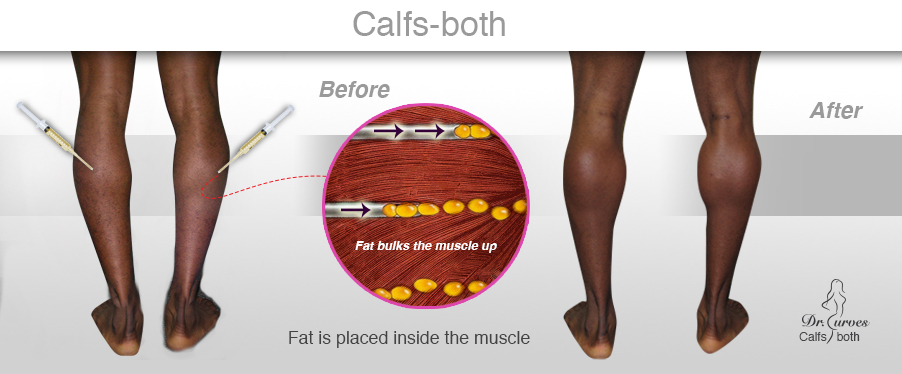Injectable hCGWhat is hCG?
hCG, or Human Chorionic Gonadotropin, is a hormone that your body produces naturally. This hormone is technically a prohormone, which means the body uses it to make a variety of other hormones as they are needed.
Some people may recognize the term hCG from when they, or a loved one, were pregnant. This is because a pregnant woman produces significantly more of this hormone than at any other time in life. The hCG helps to create the ‘building blocks’ required for the other hormones required by the mother, and the developing child. hCG has also been shown to help increase the amount of fat that is circulating through the body, which allows both the mother and the child to have access to the calories they require.
Types of hCG
Scientists have been able to develop several different forms of hCG over the years. These advancements have made it possible to get hCG as an injection, an oral supplement or even a spray. The most efficient and effective option is through injections as it allows the body to quickly absorb the hormone directly. The other options require that the hCG go through the entire digestive process, which breaks down the majority of the hormone before it can be used by the body.
How hCG Works
The hCG is an essential component of our diet program because it is what makes it possible to lose weight quickly, without sacrificing your muscle tissue. During the initial stages of the diet you will be following a very low calorie diet, which will force your body to drop weight fast. In a normal diet, this would cause you to lose muscle mass in almost equal amounts to fat, which is very unhealthy.
The hCG injections that we provide, however, allow your body to create the hormones that are necessary to protect your muscles throughout this stage. To put it simply, it puts your body into a mode where it is almost exclusively using the fat that it has available as energy.
Maintaining your body’s healthy lean muscles is the most important benefit that you will get from the hCG injections, but it is certainly not the only one. Another major advantage of hCG injections is that it also helps to decrease your hunger, which makes it much easier to stick to the strict diet throughout the first stage. Most of our patients are pleasantly surprised at just how easy it is for them to stick to the very low calorie diet without feeling hungry.
One last way the hCG injections will help is by encouraging your body to release the stores of fat that it has been holding on to. This ‘stubborn body fat’ that many people really have a hard time getting rid of will seem to just melt away. The reason this happens brings us back to the fact that hCG is produced in high amounts during pregnancy. When there is insufficient food available, a pregnant mother’s body will use up virtually every bit of fat to help keep the baby healthy. This is made possible by the elevated hCG levels, and the hCG injections will allow your body to burn through fat in the same way.
The Benefits of hCG
Whenever introducing anything into your body it is important to know what is going to happen. When you put something unnatural in, for example, you will likely have a variety of negative side effects. That is why hCG is the ideal option for weight loss. Unlike many artificial or synthetic products on the market today, hCG is something your body will make anyway, and it will actually have very beneficial results.
This is not an artificial appetite suppressant, which are often linked to heart problems and often cause rapid weight gain as soon as you stop taking them. The hCG, on the other hand, reduces hunger naturally by giving your body the ability to create the hormones it needs to maintain an anabolic state. To put it simply, it helps your body to continue to operate normally, even while burning a significant amount of fat.
Another great benefit of this diet is that it gives you the ability to ‘reset’ your pallet. During the second phase, you will be consuming very little sugar and processed carbohydrates. After the first and second phases, you will likely have few, if any, cravings for these unnatural and unhealthy foods. Giving these things up is normally very difficult, but since your body has the hCG available, it will be much easier.
Finally, the hCG allows your body to release the stored fat much more easily so you can get the energy you need, while dropping the weight fast. The fat stores will give you everything you need to maintain healthy energy levels, have a clear head and feel great even though you are only taking in about 500 calories per day in food.
Our Custom hCG Protocol
Our weight loss program is broken into four stages, each of which use the hCG to help maximize results while making it as comfortable as possible.
Phase 1 – The first stage lasts just 48 hours, and starts off with the hCG injections. During this initial 48 hours you will enjoy a high calorie diet, which will give your body what it needs to stay strong and comfortable throughout the next three phases.
Phase 2 – This is where you begin the very low calorie portion of the program. You will continue to take your daily hCG injections while also eating two small meals and two snacks each day. The food will be chosen from a list of acceptable options. While it may sound hard to believe, you won’t likely feel hungry at this stage. You may even be tempted to skip some of the allowed foods, but it is important to eat all the mails and snacks, even if you’re not hungry. The second stage typically lasts 30-40 days, depending on your specific needs.
Phase 3 – At this stage you will increase the amount of calories you consume to around 1200 per day, and you’ll also have a larger variety of food options to choose from. This stage is primarily to maintain weight, not to lose.
After phase three is completed you will either move back to phase two if you have more weight to lose, or you would transition to phase four.
Phase 4 – This is the long term maintenance phase. You will learn to make healthy lifestyle choices concerning diet and exercise. This phase will continue the rest of your life, allowing you to maintain a healthy weight.
Expected Results
If you follow the weight loss plan you can expect to lose between 15 and 30 pounds within about 30 days. Remember, this program is not designed for those who just need to lose a small amount of weight. If you have a moderate to large amount of excess fat, however, we can help to create a custom plan based on our hCG protocol to help you reach your goals quickly and with almost no discomfort. Perhaps most importantly, we can also help you to maintain a healthy weight long after you have completed the program.
To schedule a free consultation and learn more about how hCG can help you, please call 678-205-8400.

 he muscle? Thanks!
he muscle? Thanks!








































